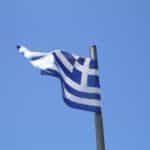UGS: Greece Maintains Its Status as Leading Shipowning Nation

Greece is the largest shipowning nation in the world, as Greek shipowners control the highest share, 21%, of the global merchant fleet in terms of deadweight tonnes – dwt. During the last ten years the total capacity of the Greek merchant fleet, currently consisting of 5,520 ships, has grown by 50%.
Greek shipping is the main facilitator of the transport of essential goods accounting for (in terms of dwt):
• 31.27% of the world oil tanker fleet
• 25.32% of the world bulk carriers
• 22.65% of the world Liquefied Natural Gas (LNG) carriers
• 15.79% of the world chemical & product tankers
• 11.46% of the world Liquified Petroleum Gas (LPG) carriers
• 8.92% of the world containerships
The Greek-owned merchant fleet is the world’s largest cross-trader. It transports cargoes between third countries with more than 98% of its fleet capacity. Greek shipowners are mostly active in bulk/tramp shipping, the segment of the industry that specializes in the carrying of staples, such as grain and other agricultural products, oil and gas, iron ore, chemical products, coal, fertilizers and forest products. Bulk/tramp shipping has the features of an almost perfectly competitive market and shipowners are price-takers. The economies of the business mean that transport is provided in the most cost effective and efficient way.
For example, through ever-increasing economies of scale, transport costs are kept strikingly low to the benefit of the end consumer. Greek shipping has been a frontrunner in this respect, too. An average Greek-owned vessel is almost twice as big as the average vessel at global level.
In particular, during the previous decade, the average size of Greek-owned ships has significantly increased, standing today at 81,395 dwt, while the world average remains far below, at 45,337 dwt. Indeed, the growth of global seaborne trade during the last decades has not been accompanied by a similar growth in transport costs, thus contributing to the improvement of living standards globally Greek shipowners do not only utilise significant economies of scale but they continue to invest heavily in new-build vessels and equipment of high environmental performance (Figure 7). They currently (April 2023) have 241 ships on order, corresponding to 19 million dwt. This represents a significant increase of 40% compared to the previous year’s orderbook (173 ships), attesting to the Greek shipping sector being the frontrunner also in fleet renewal. It is estimated that more than 40% of oil tankers and almost one out of 6 LNG carriers being built today will be delivered to Greek shipowners. Moreover, the average age of the Greek-owned fleet, around 10 years, is lower than the global average, almost 11 years.
Greek Shipping: A Strategic Sector for the European Economy
Shipping trasports more than 72% of the EU external trade. For many categories of basic food products, energy and raw materials, more than 80% of the total extra-EU trade volume is transported by sea – such as rice (90%), cereals (86%), fertilizers (86%), coffee, tea and spices (83%), animal or vegetable fats and oils (83%), man-made staple fibers (83%), while for certain ores more than 97% of volumes is transported by sea (nickel, aluminum and copper ores) . Similar to the global trade, the products related to the bulk/ tramp sector constitute the largest share of the volumes handled at EU ports.
Greek shipping is the fundamental pillar of European shipping as it accounts for 60% of the EU-controlled fleet (Figure 9). For the most strategic ship type categories, Greek shipowners control more than 70% of the total capacity of the EU-controlled fleet, guaranteeing the supply of the essential goods and critical materials to the EU. In particular, Greek shipowners control 80% of the EU-controlled bulk carriers, 73% of the EU-controlled oil tankers, 85% of the EU-controlled LNG carriers and 17% of the EU-controlled containerships. More than 1/3 of the Greek-owned fleet flies an EU Member State flag, thereby further supporting the sector’s added value to the EU economy.
Greek shipping plays a key role in ensuring the uninterrupted supply of energy products to European countries. The EU Member States almost exclusively rely on imports for their oil and natural gas needs. Specifically, the EU imports 91.7% of its oil and petroleum products needs, 83.4% of its natural gas needs and 37.5% of its solid fossil fuels needs5 , with the largest part of these quantities being transported by sea (Figure 11). Imported energy by sea is expected to rise even further during the next years as the EU policy (e.g. RePowerEU / Green Deal Industrial Plan) seeks to diversify energy sources to the EU in light of geopolitical conflicts and rivalries.
At the same time, the recent EU initiative Green Deal Industrial Plan (GDIP) aims to make Europe a hub of green products and new technologies. Its success will rely to a large extent on the performance of the shipping sector to enhance the resilience of supply chains and secure the uninhibited flow of Critical Raw Materials – 90% of which are already transported by sea6 – and other essential inputs for the European economy. Vessels will also transport the largest part of the new green products and alternative fuels around the world.
Source: UGS (Union of Greek Shipowners), https://ugs.gr/media/13819/annual-report-22-23.pdf
Source link
